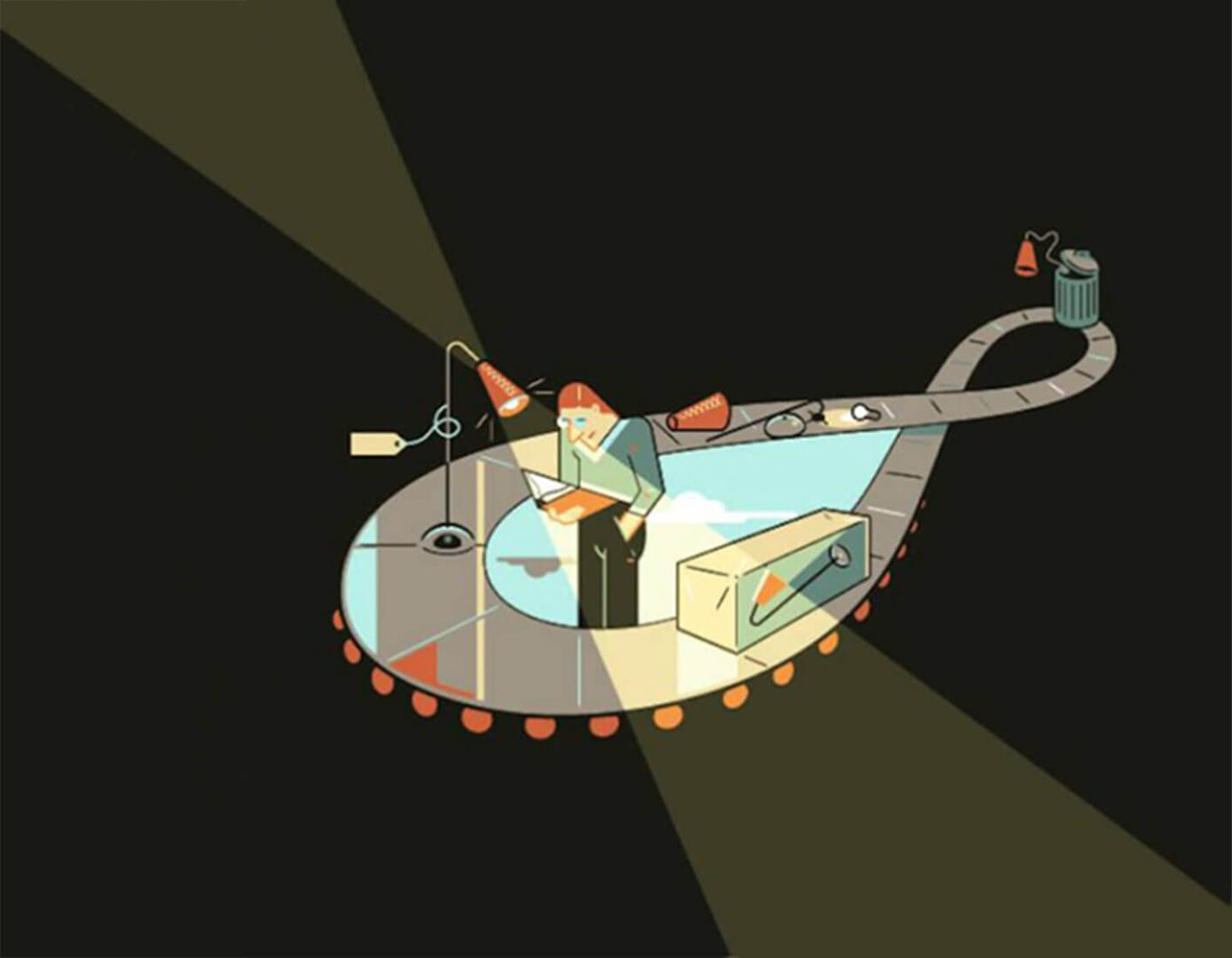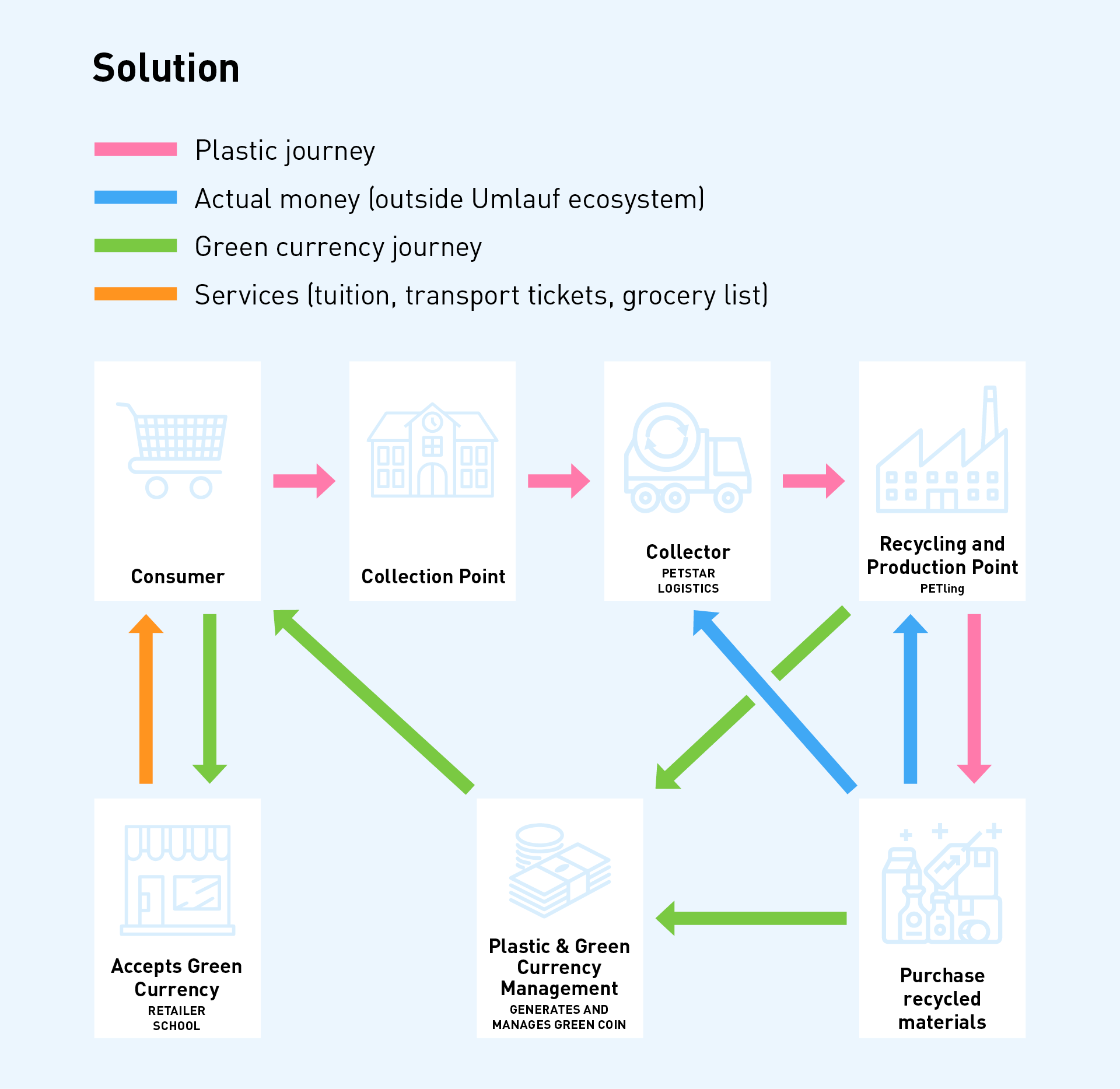
As the world devours more and more plastic packaging, many economies are struggling to keep up with the waste, with devastating effects on the planet. Part of the solution for a more sustainable way of life is to encourage more people and companies to recycle plastic.
Unfortunately, in many parts of the world, there are inadequate systems for recycling leaving communities far beyond the reach of the benefits of the circular economy. Incentives for participation are poor and the different types of plastic can make any recycling system inefficient and confusing.
As part of their EMBA, participants taking part in elea Professor of Social Innovation Vanina Farber’s “A Primer in Impact Investing and ESG Integration” module learn how to foster positive impact through business and investment decisions. The course, which includes a group project to apply impact solutions to a real-world challenge, seeks to change mindsets and drive change to build a more sustainable economy.
One group focused their business expertise – as well as their newly-learned tools and insights – on a recycling start-up in Mexico, founded by Zair Dominguez, the brother of EMBA participant Zabdiel Dominguez. Umlauf’s goal is to connect the whole chain, from manufacturer and retailers to consumers, shops and recycling plants, to build a user-friendly circular economy for consumer goods packaging.
“This is a problem that affects every country, every region and every town, but the benefits of a circular economy are enormous,” Zabdiel explained. “The wide range of types of plastics and treatment required for each makes this problem a complex one to solve, and calls on the active participation of a wide range of ecosystem actors.”
Joining the dots to form a circle
Umlauf’s formative business model and recycling app had a gap in how to effectively engage people with its services – a factor that was crucial in building a scalable solution.
Drawing on their broad range of expertise, such as finance, digital transformation and supply chain, the EMBAs further developed the app – which scans products to explain how to recycle them – as part of a solution to build an aligned and incentivized ecosystem of partners.
“We were very fortunate to have a diverse team, on multiple dimensions: work experience background, nationality, gender and personalities,” said Esther Rey Losada. “This helped us, as a team, to have more inclusive conversations and to reach better decisions towards our goal.”
The team innovated to add new features to Umlauf’s app, such as gamification for engagement and an interface to connect the full ecosystem, as well as devising a cryptocurrency concept to manage incentives and encourage participation throughout the chain.
“The mobile app enables green citizens to easily scan and identify the type of plastic they have, post the location and have it collected by pickers,” said Cristina-Elena Vintila. “Pickers can use the ‘maps’ view to spot plastic up for grabs, and know which collection points exist and types of plastic they accept.”
The team’s green currency system provides rewards to pickers, collectors and end users, leveraging the existing recycling ecosystem in Mexico in which fast moving consumer goods companies already pay for plastic. Completing the circle, partner neighborhood “Mom and Pop” shops accept green currency as payment for groceries as well as providing information on how many children are picking plastic for income in order to inform anti-child labor policies.
“The EMBA primer definitely inspired us to think outside the box, and not try to fix everything with technology, but rather dig deeper into better understanding the social impact of our enterprise and engaging the existing infrastructure and ecosystem present in this space,” said Daniel Samson.
“The KPIs for measuring impact, value capturing and monetizing insights we got from the course helped us structure our business plan and understand which parts of our solution were feasible from the business point-of-view, allowing us to iterate fast towards a working solution,” added Diana Medved.
According to Professor Farber, the Umlauf EMBA group project showcased the potential of the primer module in bringing together diverse perspectives, fresh learning and experiences to co-create impactful solutions for today’s critical business challenges.
“The team combined their expertise and learning to transform what was originally linear solution between the recycling entrepreneur and waste pickers into an ambitious and holistic one, which joined up the whole ecosystem,” Farber said. “They were able to align incentives to build a value constellation that created positive impact as well as returns for all stakeholders.”
The experience has left the EMBAs eager to integrate ESG and impact into their own business pathways, as well as pursuing the possibility of supporting Umlauf further as it evolves.
The experience of putting the course teaching into practice through group projects embedded their learning and showcased how impact can be transferred to the real world, Farber said. Crucially, the course also changed mindsets and attitudes towards impact – one of its key goals.
“It changed my perception towards a better and more pragmatic approach that puts these efforts outside of the NGO space and into the “real” business grounds – especially the relevance of being intentional about social impact as a business driver,” said Per Bjöörn.



